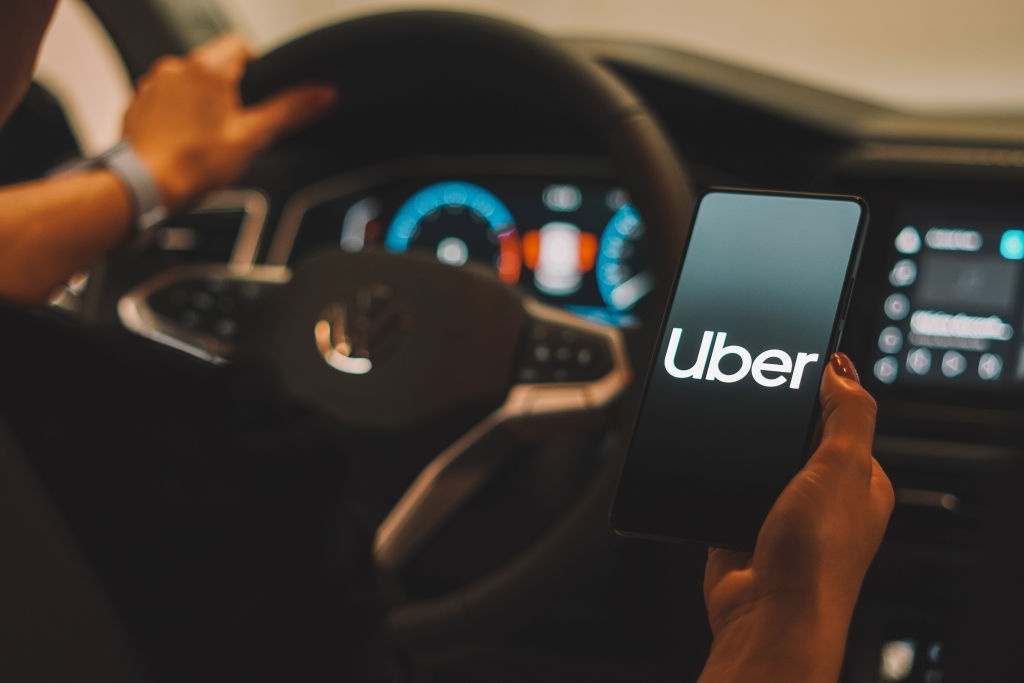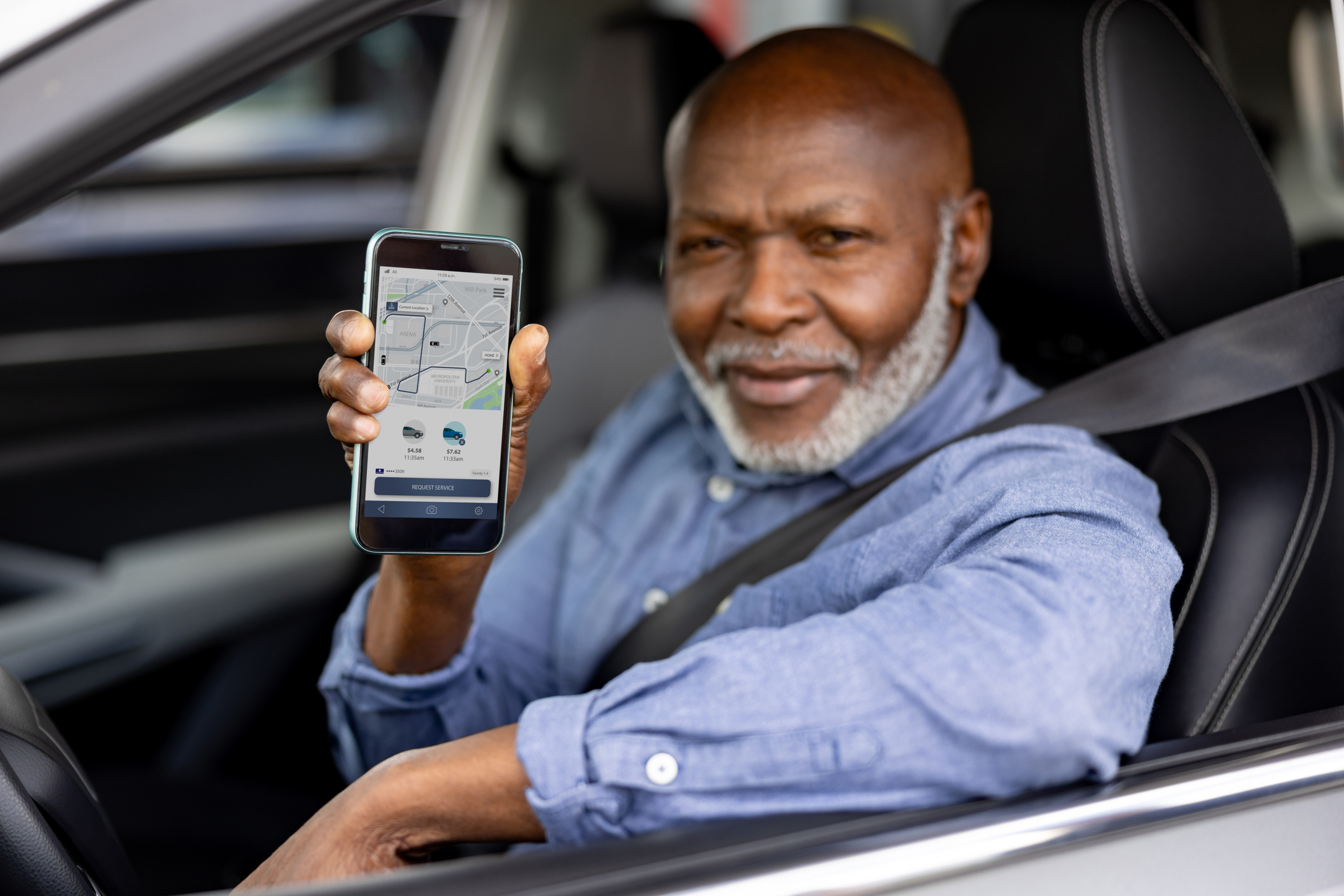Are Rideshare Drivers on the Road to Financial Ruin?
Being a rideshare driver can be a great way to meet people and make money. But overlooking this one thing could cost you thousands.


Profit and prosper with the best of Kiplinger's advice on investing, taxes, retirement, personal finance and much more. Delivered daily. Enter your email in the box and click Sign Me Up.
You are now subscribed
Your newsletter sign-up was successful
Want to add more newsletters?

Delivered daily
Kiplinger Today
Profit and prosper with the best of Kiplinger's advice on investing, taxes, retirement, personal finance and much more delivered daily. Smart money moves start here.

Sent five days a week
Kiplinger A Step Ahead
Get practical help to make better financial decisions in your everyday life, from spending to savings on top deals.

Delivered daily
Kiplinger Closing Bell
Get today's biggest financial and investing headlines delivered to your inbox every day the U.S. stock market is open.

Sent twice a week
Kiplinger Adviser Intel
Financial pros across the country share best practices and fresh tactics to preserve and grow your wealth.

Delivered weekly
Kiplinger Tax Tips
Trim your federal and state tax bills with practical tax-planning and tax-cutting strategies.

Sent twice a week
Kiplinger Retirement Tips
Your twice-a-week guide to planning and enjoying a financially secure and richly rewarding retirement

Sent bimonthly.
Kiplinger Adviser Angle
Insights for advisers, wealth managers and other financial professionals.

Sent twice a week
Kiplinger Investing Weekly
Your twice-a-week roundup of promising stocks, funds, companies and industries you should consider, ones you should avoid, and why.

Sent weekly for six weeks
Kiplinger Invest for Retirement
Your step-by-step six-part series on how to invest for retirement, from devising a successful strategy to exactly which investments to choose.
Driving for a rideshare company sounds great on the surface. You set your hours, meet people from all walks of life and earn money in the process.
If you're a college student or a retiree wanting to get out of the house more, you might consider it as a viable option. While it can be for many, there are some things you should consider before taking the plunge.
For starters, you'll need to use your vehicle for rides and deliveries. Over time, the wear and tear from the miles can reduce your earnings further with oil changes, ample trips to the gas station, tire and brake replacements and other repairs eating into your bottom line.
From just $107.88 $24.99 for Kiplinger Personal Finance
Become a smarter, better informed investor. Subscribe from just $107.88 $24.99, plus get up to 4 Special Issues

Sign up for Kiplinger’s Free Newsletters
Profit and prosper with the best of expert advice on investing, taxes, retirement, personal finance and more - straight to your e-mail.
Profit and prosper with the best of expert advice - straight to your e-mail.
However, there's an even more critical element that relates to your car insurance.
The startling truth about insurance and ridesharing
Being a rideshare driver means you're driving more miles, putting you at risk for more accidents.
A University of Illinois at Chicago study found that one in three rideshare drivers had been involved in an accident. Depending on when the accident happens, it can make a huge difference in your financial protection.
Say you're starting work for the day and driving around awaiting your first rider. As you move around the neighborhood, a car pulls out suddenly in front of you, and even with quick reflexes, you're unable to stop in time, slamming into the vehicle.
The other driver has injuries and significant damage. Your vehicle has seen better days. Then you're surprised to find you're on the hook for damages to your car because your regular policy doesn't cover ridesharing.
Why? Because your regular policy is for personal use only, not commercial, which is what you would be using it for if you drove for Uber or Lyft.
While both provide limited liability coverage during this time, it's for other drivers. If your vehicle becomes damaged or you incur any injuries resulting from an accident, you could be on the hook for these costs if you haven't notified your insurance that you intend to use your covered vehicle for ridesharing purposes.
That means you could be without a car if you can't afford repairs, and if you're hurt, you could incur significant medical debt.
Thankfully, you can add rideshare coverage to your existing auto insurance policy. The best way to save money on insurance is to shop around. Use the tool below to explore some of today's best car insurance offer, powered by Bankrate:
How much does ridesharing insurance cost?
Insurify has a tool that lets you compare rideshare insurance costs in your area. They pool quotes from top providers, such as Allstate and Progressive, to help you see how much you'll pay. Keep in mind your costs vary based on where you live, what you drive and your driving history.
It’s important to note that this extra coverage is only needed during the period when you’re logged into a rideshare app but haven’t yet accepted a trip.
Once you accept a ride request, companies such as Uber and Lyft provide more comprehensive coverage that extends to you, your vehicle and other motorists if an accident occurs.
What does ridesharing insurance cover?
Adding rideshare insurance is integral to protecting your finances. Here are some of the coverages it includes:
- Liability coverage: Covers damage and injuries that another party incurs resulting from an accident.
- Comprehensive and collision coverage: Covers you financially if your vehicle incurs damage from an accident, weather or theft.
- Uninsured/underinsured motorist protection: If a driver hits you and doesn't have insurance or their coverage is inadequate, this bridges the gap to ensure you receive the financial assistance you need.
- Deductible reimbursement: It's an optional policy that covers the difference between the ridesharing's deductible (often around $2,500) and your policy's deductible to lower your out-of-pocket costs. What is a deductible in car insurance? It's the amount you must pay before your carrier pays its share of the claim.
- Additional coverage: You can also add on coverage for roadside assistance, rental car reimbursement and more.
A driver's checklist before doing ridesharing

Before signing up, read the qualifications of the provider to ensure you qualify. This is particularly the case for college students, as Uber requires a year of driving experience before being approved.
Once you qualify, reach out to your insurance carrier. Many of the top carriers allow you to change coverage in their app, or you can call to request ridesharing coverage. Ask them what their policy covers and any additional coverages you might want to consider.
Ultimately, while it's an extra step, securing coverage for ridesharing is integral. It bridges the gap between the lapses in coverage for when you're awaiting work and when you're working.
This will protect you financially from having to pay significantly out-of-pocket to repair or replace your vehicle and any other bills that arise.
Related content
Profit and prosper with the best of Kiplinger's advice on investing, taxes, retirement, personal finance and much more. Delivered daily. Enter your email in the box and click Sign Me Up.

Sean is a veteran personal finance writer, with over 10 years of experience. He's written finance guides on insurance, savings, travel and more for CNET, Bankrate and GOBankingRates.
-
 Quiz: Do You Know How to Avoid the "Medigap Trap?"
Quiz: Do You Know How to Avoid the "Medigap Trap?"Quiz Test your basic knowledge of the "Medigap Trap" in our quick quiz.
-
 5 Top Tax-Efficient Mutual Funds for Smarter Investing
5 Top Tax-Efficient Mutual Funds for Smarter InvestingMutual funds are many things, but "tax-friendly" usually isn't one of them. These are the exceptions.
-
 AI Sparks Existential Crisis for Software Stocks
AI Sparks Existential Crisis for Software StocksThe Kiplinger Letter Fears that SaaS subscription software could be rendered obsolete by artificial intelligence make investors jittery.
-
 One of the Most Powerful Wealth-Building Moves a Woman Can Make: A Midcareer Pivot
One of the Most Powerful Wealth-Building Moves a Woman Can Make: A Midcareer PivotIf it feels like you can't sustain what you're doing for the next 20 years, it's time for an honest look at what's draining you and what energizes you.
-
 I'm a Wealth Adviser Obsessed With Mahjong: Here Are 8 Ways It Can Teach Us How to Manage Our Money
I'm a Wealth Adviser Obsessed With Mahjong: Here Are 8 Ways It Can Teach Us How to Manage Our MoneyThis increasingly popular Chinese game can teach us not only how to help manage our money but also how important it is to connect with other people.
-
 Looking for a Financial Book That Won't Put Your Young Adult to Sleep? This One Makes 'Cents'
Looking for a Financial Book That Won't Put Your Young Adult to Sleep? This One Makes 'Cents'"Wealth Your Way" by Cosmo DeStefano offers a highly accessible guide for young adults and their parents on building wealth through simple, consistent habits.
-
 My Spouse and I Are Saving Money for a Down Payment on a House. Which Savings Account is the Best Way to Reach Our Goal?
My Spouse and I Are Saving Money for a Down Payment on a House. Which Savings Account is the Best Way to Reach Our Goal?Learn how timing matters when it comes to choosing the right account.
-
 We're 78 and Want to Use Our 2026 RMD to Treat Our Kids and Grandkids to a Vacation. How Should We Approach This?
We're 78 and Want to Use Our 2026 RMD to Treat Our Kids and Grandkids to a Vacation. How Should We Approach This?An extended family vacation can be a fun and bonding experience if planned well. Here are tips from travel experts.
-
 My First $1 Million: Retired From Real Estate, 75, San Francisco
My First $1 Million: Retired From Real Estate, 75, San FranciscoEver wonder how someone who's made a million dollars or more did it? Kiplinger's My First $1 Million series uncovers the answers.
-
 To Love, Honor and Make Financial Decisions as Equal Partners
To Love, Honor and Make Financial Decisions as Equal PartnersEnsuring both partners are engaged in financial decisions isn't just about fairness — it's a risk-management strategy that protects against costly crises.
-
 Top 5 Career Lessons From the 2026 Winter Olympics (So Far)
Top 5 Career Lessons From the 2026 Winter Olympics (So Far)Five lessons to learn from the 2026 Winter Olympics for your career and finances.